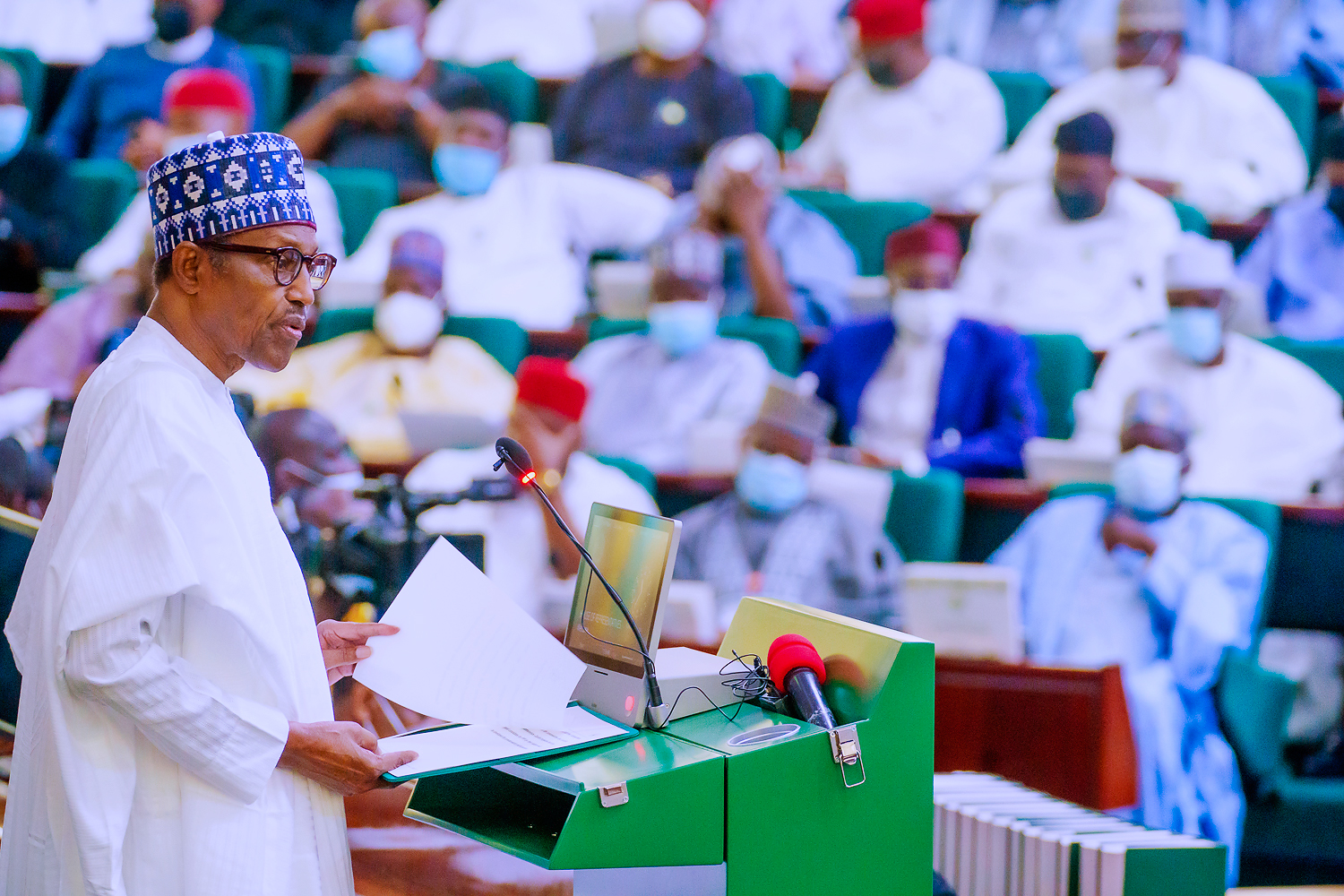The Nigerian President Muhammadu Buhari has presented a N16.39 trillion as the country’s Budget proposal for the 2022 fiscal year, to the joint session of the National Assembly.
The proposal tagged: Budget of Economic Growth and Sustainability, reflect a N2.79 trillion increase over the 2021 Budget.
 Presenting the financial document, President Buhari said; ”allocations in the budget were guided by the strategic objectives of the National Development Plan of 2021 to 2025, which include, diversifying the economy, with robust MSME growth, investing in critical infrastructure, and strengthening security and ensuring good governance.”
Presenting the financial document, President Buhari said; ”allocations in the budget were guided by the strategic objectives of the National Development Plan of 2021 to 2025, which include, diversifying the economy, with robust MSME growth, investing in critical infrastructure, and strengthening security and ensuring good governance.”
”Other objectives are enabling a vibrant, educated and healthy populace, reducing poverty; and minimizing regional, economic and social disparities.
“Defence and internal security will continue to be our top priority. We remain firmly committed to the security of life, property and investment nationwide. We will continue to ensure that our gallant men and women in the armed forces, police and paramilitary units are properly equipped, remunerated and well-motivated.
”The 2022 budget is also the first in our history, where MDAs were clearly advised on gender-responsive budgeting. These are part of critical steps in our efforts to distribute resources fairly and reach vulnerable groups of our society,” President Buhari stated.
He also explained that the N6.24 trillion deficit would be finance through borrowing, both Foreign and Domestic as well as Privatization Proceeds.
President Buhari said; “We plan to finance the deficit mainly by new borrowings totalling N5.01 trillion, N90.73 billion from Privatisation Proceeds and N1.16 trillion drawdowns on loans secured for specific development projects.
”Some have expressed concern over our resort to borrowing to finance our fiscal gaps. They are right to be concerned. However, we believe that the debt level of the Nigerian Government is still within sustainable limits. Borrowings are to specific strategic projects and can be verified publicly.
”As you are aware, we have witnessed two economic recessions within the period of this Administration. In both cases, we had to spend our way out of recession, which necessitated a resort to growing the public debt. It is unlikely that our recovery from each of the two recessions would have grown as fast without the sustained government expenditure funded by debt.”

Revenue generation
Earlier the President of the Senate, Dr. Ahmad Lawan stressed the need for stringent measures to increase the country’s revenue generation to bridge the budget deficit.
 While commending the executive for the full implementation of 2020 budget as well as the successes in the 2021 budget implementation, Dr Lawan said; ”the National Assembly is committed to working on the proposal to maintain the January – December Budget Cycle.”
While commending the executive for the full implementation of 2020 budget as well as the successes in the 2021 budget implementation, Dr Lawan said; ”the National Assembly is committed to working on the proposal to maintain the January – December Budget Cycle.”
The Speaker, House of Representatives, Mr. Femi Gbajabiamila in a remark warned that the National Assembly would not allow any government agency to retard the successes so far achieved in terms of infrastructure and good governance in the country.
Mr. Gbajabiamila said; “Let me use this opportunity to say to the heads of ministries, departments and agencies of the Federal Government of Nigeria that the determination of the National Assembly to deliver a timely budget will not derogate from our responsibility to ensure exhaustive consideration of the Bill.
”We will demand a thorough accounting for the funds previously appropriated, disbursed and expended. And we will take steps to hold to account those who fail to provide the records we need to make informed decisions on the Appropriation Bill. This is the responsibility of the National Assembly, and we will live up to it.”



President Buhari leaving after the presentation
In the proposal N100 billion was provided for the 2023 Elections, N540 billion for National Poverty Reduction Programme and N300 billion in Police Operation Fund.
Others are N178 billion for conducting Population Census in 2022, N50 billion each to hazard allowance for health workers and public service wage adjustment as well as N390 billion increase in capital expenditure of MDAs.




You must be logged in to post a comment.